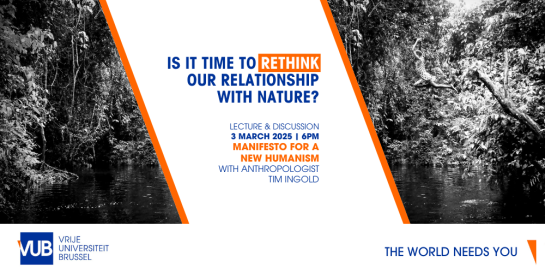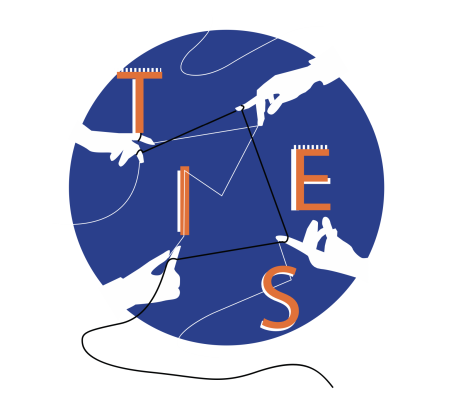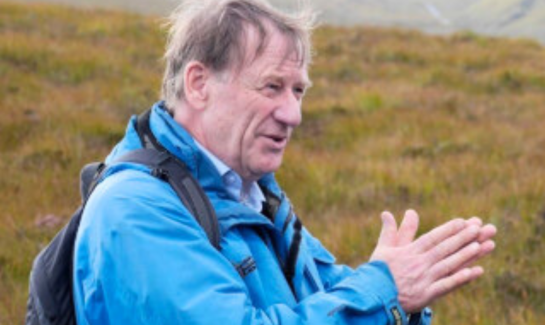Isn’t it time to rethink our relationship with nature? Should we keep dominating it, or rather find new ways to coexist with our environment? What if true “progress” doesn’t lie in relentless technological advancement but in sustainability? Is a sustainable future even achievable for humanity, or does our survival depend on fundamentally reinventing ourselves? Anthropologist Tim Ingold can help us find some answers to these burning questions.

CLIC is happy to invite you to an evening with anthropologist Tim Ingold as part of the lecture series ‘Ties That Bind Us’. He encourages us to reconsider humanity’s place within the natural world. This event will take place on 3 March 2025, from 18:00 to 20:00 2024, at VUB Main Campus Etterbeek (exact location to be confirmed). Please visit this link to book your free tickets.

For centuries, the Western doctrine of progress positioned humans as rulers of creation, fueling advances in science and technology but at the cost of deepening social inequality and environmental harm.
During this evening, Ingold outlines his vision for a “new humanism” — a perspective that recognizes humans as distinct yet integrally connected to the web of life. Rather than seeing ourselves as detached “beings”, Ingold argues that we are "becomings," continually shaping and being shaped by the world around us. He urges us to embrace a new role not as conquerors of nature but as caretakers, acknowledging our central responsibility within a shared life on Earth.
At Vrije Universiteit Brussel, you’re free to ask questions, make up your own minds and to change your opinions. Join us to discuss with Tim Ingold what it means to be human in an interdependent world.
“The doctrine of progress, first articulated by philosophers of the European Enlightenment, have come at the cost of mounting social injustice and environmental degradation. Today, these costs are no longer sustainable.” (Tim Ingold)

Prof. dr. Tim Ingold (University of Aberdeen) is a British anthropologist whose work spans a vast array of topics, from human-environment interactions and the role of perception in understanding the world, to more abstract concepts like movement, creativity, and the entanglement of human lives with materiality. He is known for breaking down traditional divides between anthropology, philosophy, and the natural sciences, advocating for a view that sees humans as inherently interwoven with the landscapes and materials they inhabit.
Ingold’s work is essential for anyone interested in understanding human experience in relation to the material world and has had a profound impact on fields beyond anthropology, including art, design, and ecology. His ideas prompt a rethinking of human existence not as isolated or dominant but as profoundly interconnected with the ongoing life of the world.
For more details, please visit: https://www.vub.be/en/event/manifesto-for-new-humanism-lecture-discussion-3-march-2025

